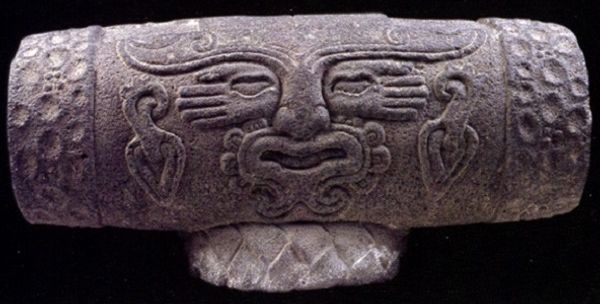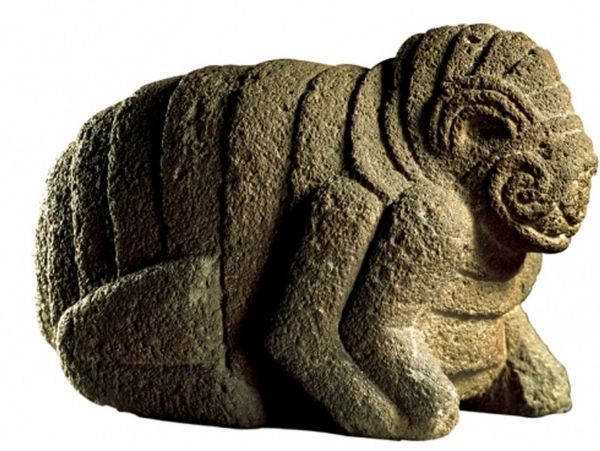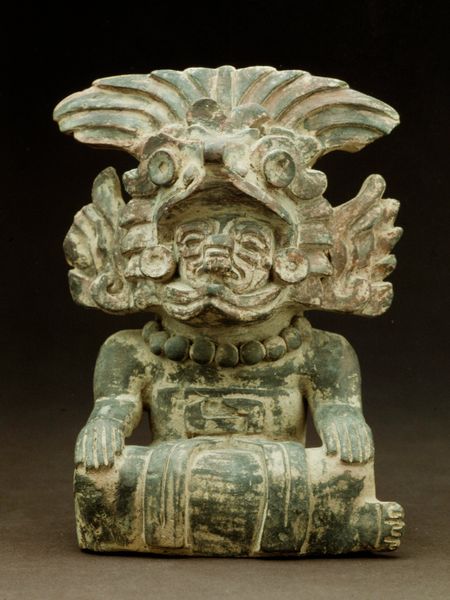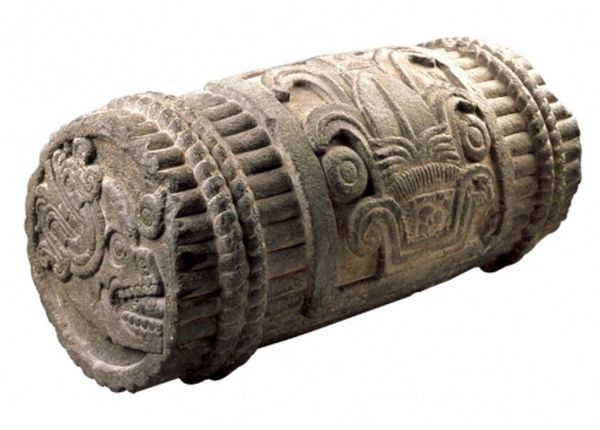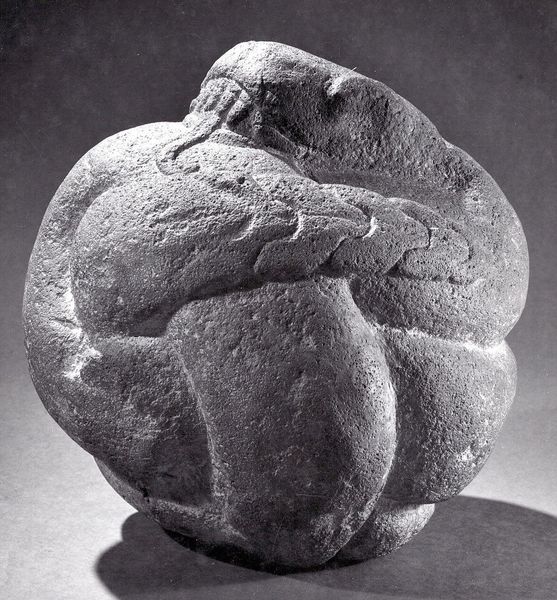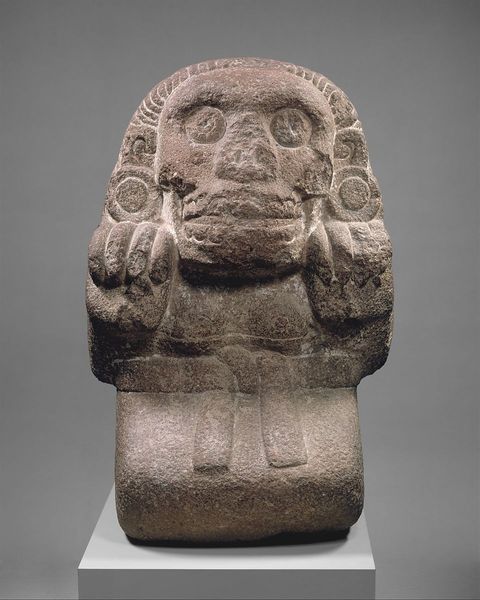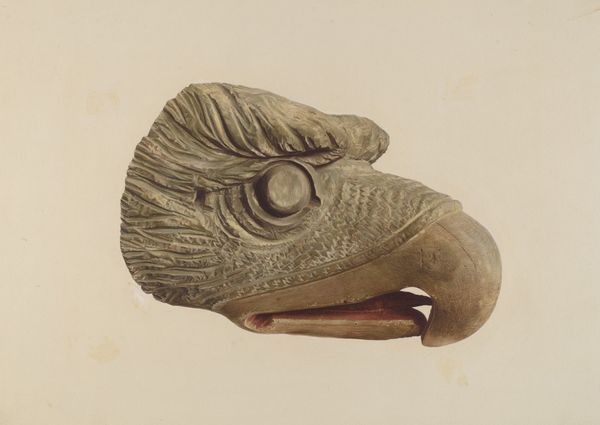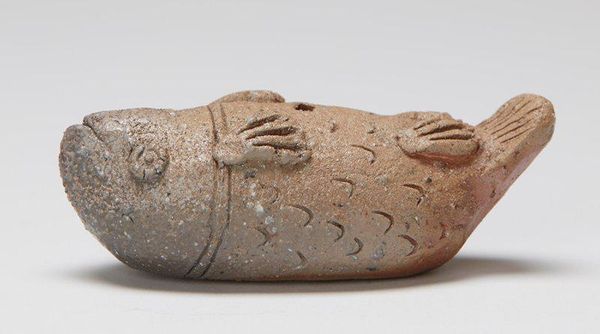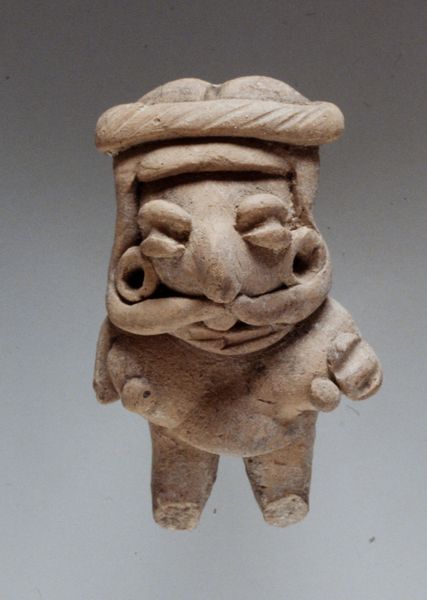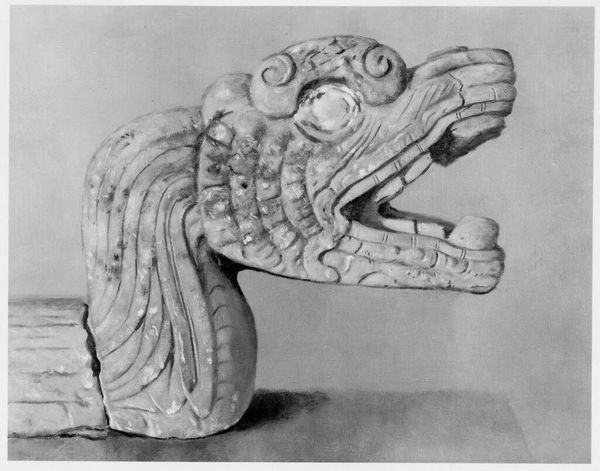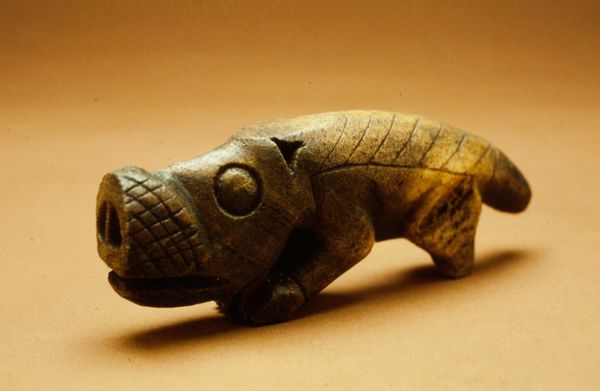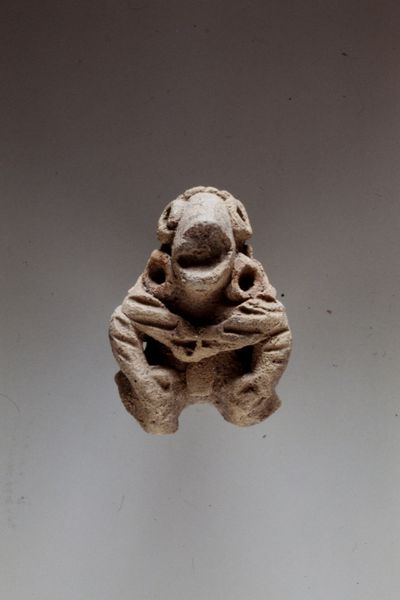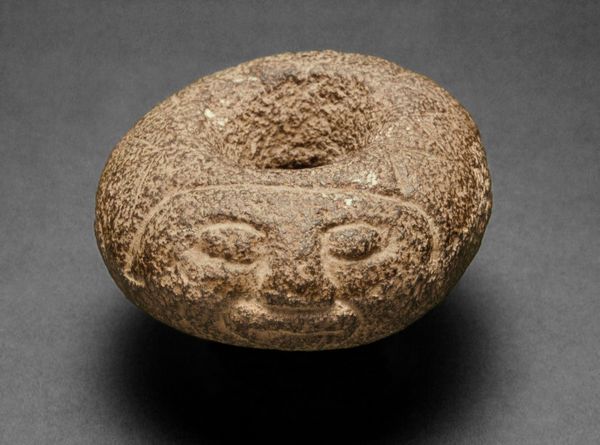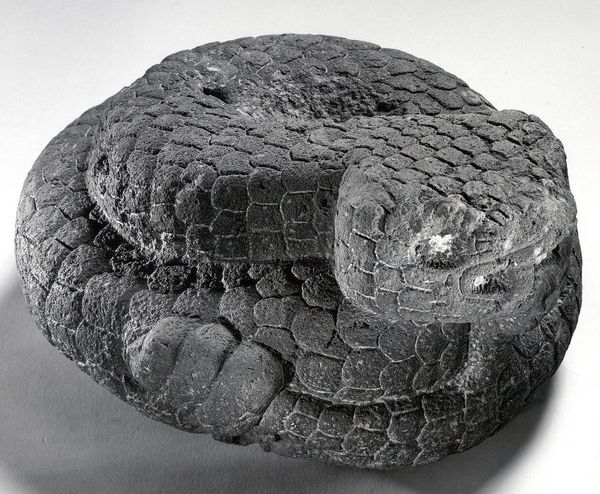
carving, sculpture
#
carving
#
sculpture
#
figuration
#
form
#
sculpture
#
indigenous-americas
Copyright: Public domain
This Serpent Head, sculpted by an Aztec artist between 1300 and 1521, presents a striking image in stone. The tight, almost claustrophobic, composition focuses entirely on the snake's head, instilling a sense of immediate presence. Its texture is defined by rows of carefully carved scales, evoking a tactile quality that belies the stone's coldness. The serpent, a key symbol in Mesoamerican cultures, often represents duality—earth and sky, life and death. Here, the formal qualities amplify these themes. The tightly coiled form suggests containment and potential energy, while the detailed scales emphasize the creature's earthly nature. The serpent's gaze, though fixed, carries a sense of alertness, hinting at hidden knowledge. This sculpture functions not just as a representation but as a material embodiment of complex cosmological ideas. The Aztec artist utilized form and texture to engage with profound themes, inviting continuous interpretation of their cultural and philosophical values.
Comments
No comments
Be the first to comment and join the conversation on the ultimate creative platform.
